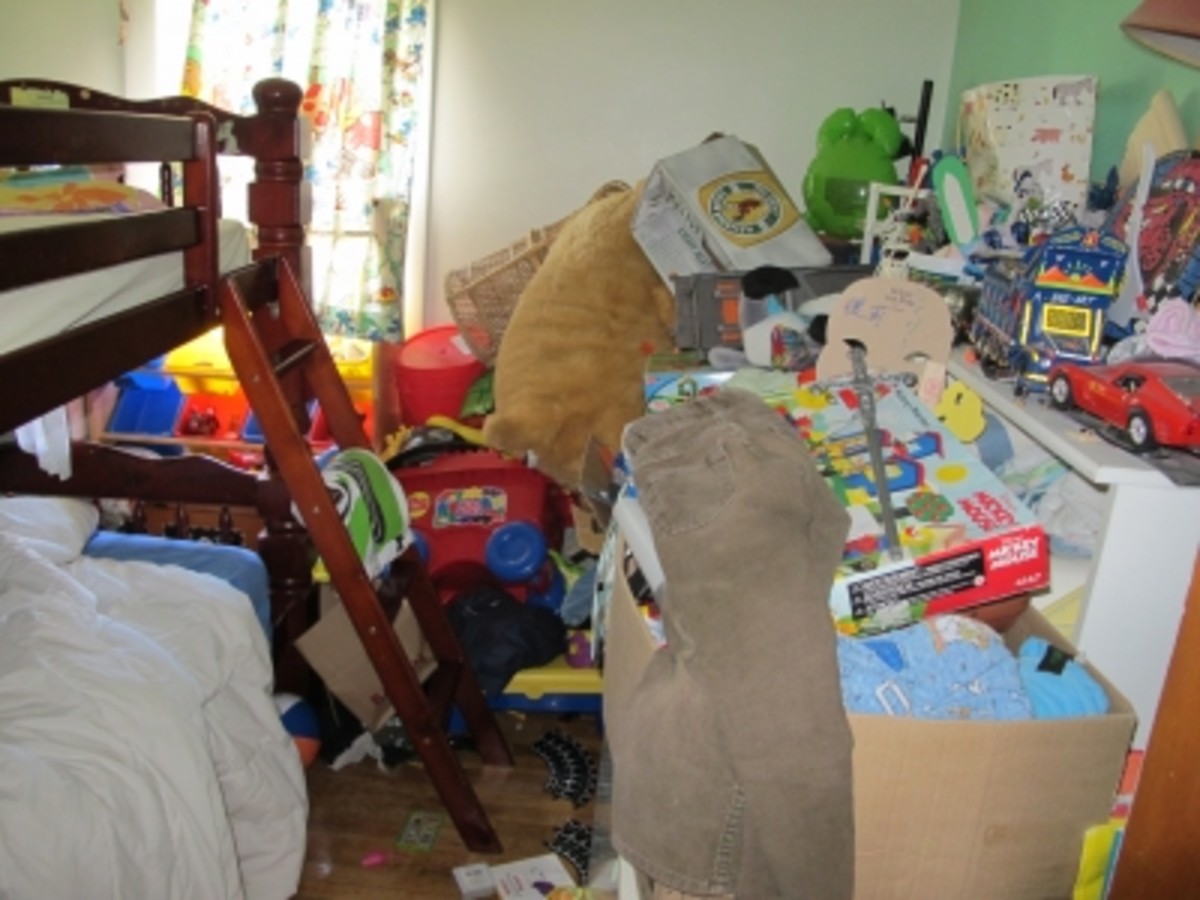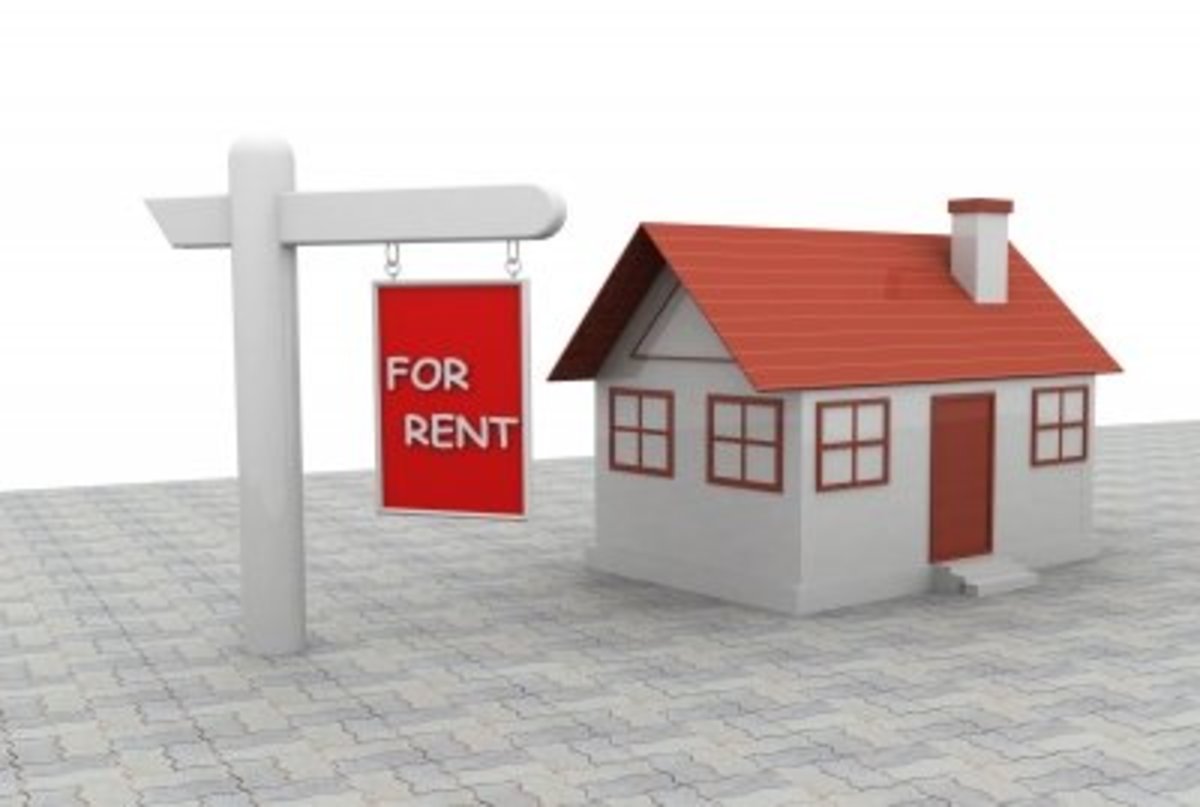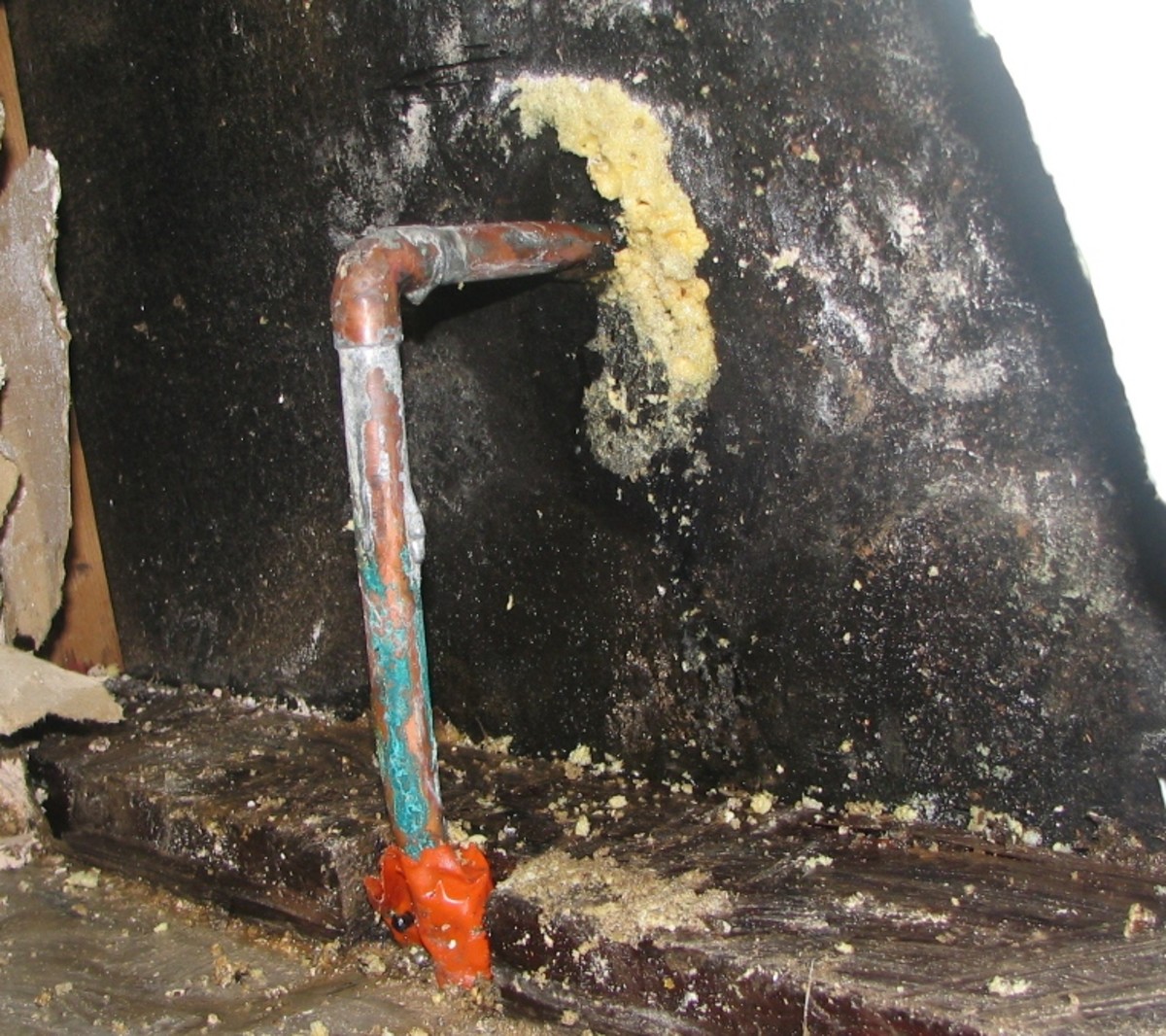Why Evicting a Tenant for Non-Payment of Rent Is Necessary
What Landlords Expect from a Tenant
Landlords need the rent every month to pay the mortgage, insurance, taxes and for other property expenses. Landlords expect the rent to be paid on time every month. Rent is due on the first day of the month, and late on the second day.
Landlords expect a tenant and others under their control to respect the property. That includes the building as well as their apartment.
Landlords expect a tenant, their friends and relatives will respect the quiet enjoyment of the property.

Why Evict Your Tenant?
If you have a rental income house or apartment building, you may in the lifetime of that ownership have to evict a tenant. When you need to evict a tenant for non-payment of rent, or nuisance behavior, there is more to think about than the problem tenant. Remember that paying the rent is the tenant's cost of living on your property. Consider the other tenants who suffer because of the tenant’s negative actions. Work cannot be maintained because the landlord doesn't have the funds.
By evicting a non-rent paying tenant, you are also sending a message to the other tenants that you are serious regarding your rent. At the same time, a tenant's eviction reclaims your apartment to rent for another tenant who is more stable and will pay the rent on time.
What Happens When You Fail to Evict?
The 2004 Census Bureau reports that for 33.7% of American homeowners, income from rent was the main reason for purchasing rental income property. It stands to reason then, that the monthly rent and timely payments are key elements of success for a homeowner. If you depend on the rent to help cover the mortgage each month, and the tenant fails to pay it or consistently pays it late, you could go into foreclosure. And your credit score will immediately be lowered.
One alternative to non-payment of rent is to use your own income to make up the difference to pay the mortgage. If you had that kind of money, you wouldn’t have bought a rental income property. The longer a tenant does not pay the rent, the further into your pocket you must go to pay the mortgage. And, your other bills will not be paid, shoving your credit score down the ladder, into possible bankruptcy.
Your real estate investment property is a business that needs to pay its own bills without you need to financially subsidize it. You need to know how to get the tenant back on a paying basis. Or, you need to know how to remove that tenant in a timely manner. The solution is to get your tenant to pay the rent before you run out of your savings. Or immediately begin the eviction process to its financial conclusion.
The Effect on Your Mortgage Payments
According to www.Bankruptcyhome.com, the inability to pay the mortgage or needing more time to make up missed payments is one of the top three reasons why homeowners file for bankruptcy. The AARP Bulletin (www.aarp.org) states that all personal bankruptcy filings in 2010 rose to 1.5 million. If you own income producing property, failure to collect the rent contributes to bankruptcy. Processing a timely eviction and replacing the tenant can help bring in the income you need every month to keep your home.
Evicting a tenant who is not paying the rent puts you in a critical situation. What can be done to get the rent from your tenant? Or what can be done to remove your tenant from your property?
The Eviction Mind-Set
There are landlords who hate the thought of evicting a tenant. If every tenant lived in your apartment the way you wanted, there would be no need for eviction. If every tenant were able to stay fully employed, married forever, and had obedient, well-mannered children, family and/or friends, and no addictions, you would have little to worry about. You could collect your rent each month, pay your mortgage and other property bills, and maintain your house or building in good condition from year to year. You might even be able to make a profit from your investment.
There may come a day when your tenant may lose his or her job and have to live off unemployment for months with far less money. Your tenant may lose a husband or wife to a divorce or separation, leaving the remaining spouse to pay the rent by him or herself. There could come a time when your honest, stable or reliable tenant, spouse, child, etc. could fall to drink or illegal drug use. Your job is to evict the tenant, that stops paying the rent, even if it is during a holiday season.
A tenant eviction is a serious matter. Your actions could make the tenant a homeless person or family for a very long time. Even a working person or family could find getting housing difficult to do within the time frame of an eviction.
As a homeowner, you should attempt to use preventive approaches before deciding that a lawsuit is the only way to solve your problem with a tenant. For example, send a letter asking for the rent. Have a meeting with the tenant. Failing those efforts, eviction is the only alternative if you plan to survive financially.
The Costs of an Eviction
The residential eviction process is costly, even if you do it yourself from beginning to end. You will lose time, money, the repairs and painting you completed on the apartment. You will have added frustration, stress, anger, and sometimes, even desperation to the process.
The significant cost of doing an eviction is a reason why prevention is much better than eviction. Sometimes it is cheaper to keep a tenant if you can find a mutual way to work things out. Still, there will come a time when talking is over, and it is time to take action against your tenant.
Remember that you do not evict a tenant; a tenant evicts him or herself by taking or avoiding the issues that subsequently will cause you to have to act in response. This should encourage you in your efforts. Taking eviction action in a timely manner is critical for the financial health of your rental income property.
Final Advice
The biggest question to ask yourself before you start the eviction process, should not be, “How fast can I get this tenant out of my apartment?” The question to ask should be, “What will happen to my property if I don’t evict this tenant?”

Relevant Links on the Eviction Process
- How to Remove and Store Your Evicted Tenant's Belongings
Your responsibilities to your tenant do not end with serving them with the eviction notice. You may have to remove their belongings if they don't leave on their own. There are laws that govern what to do with your tenant's belongings, where to put th - How to Stay in Control During the Eviction Process
When the relationship between a landlord and the tenant goes sour, eviction action may be necessary. The landlord will be faced with difficult decisions, especially if he or she is fond of the tenant. The landlord must conduct this traumatic, yet bus
This content is accurate and true to the best of the author’s knowledge and is not meant to substitute for formal and individualized advice from a qualified professional.
© 2011 Carolyn Gibson








